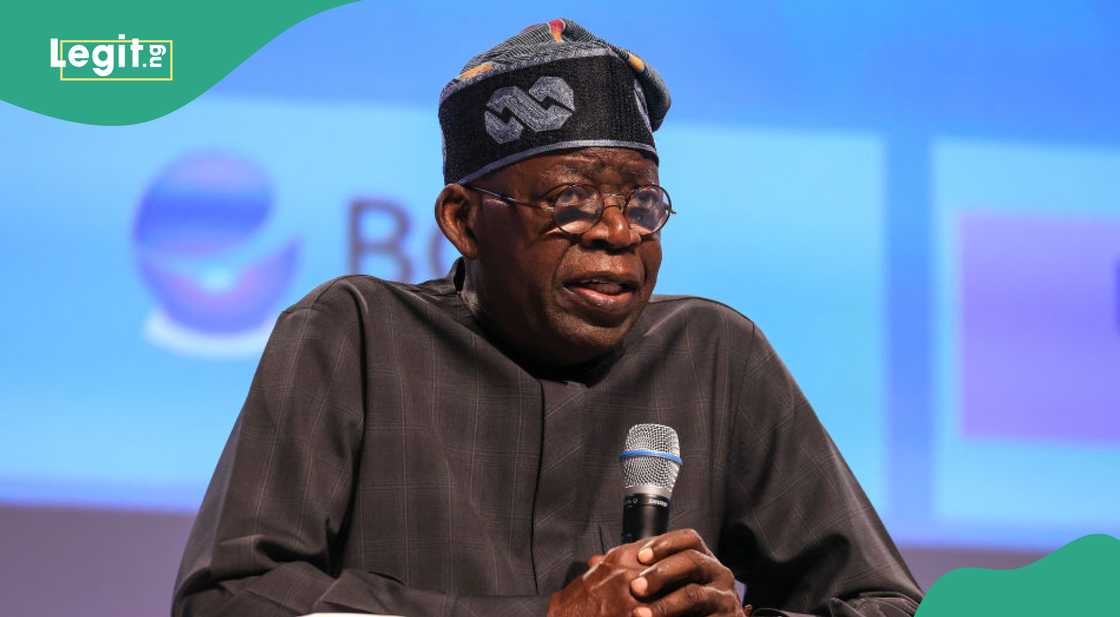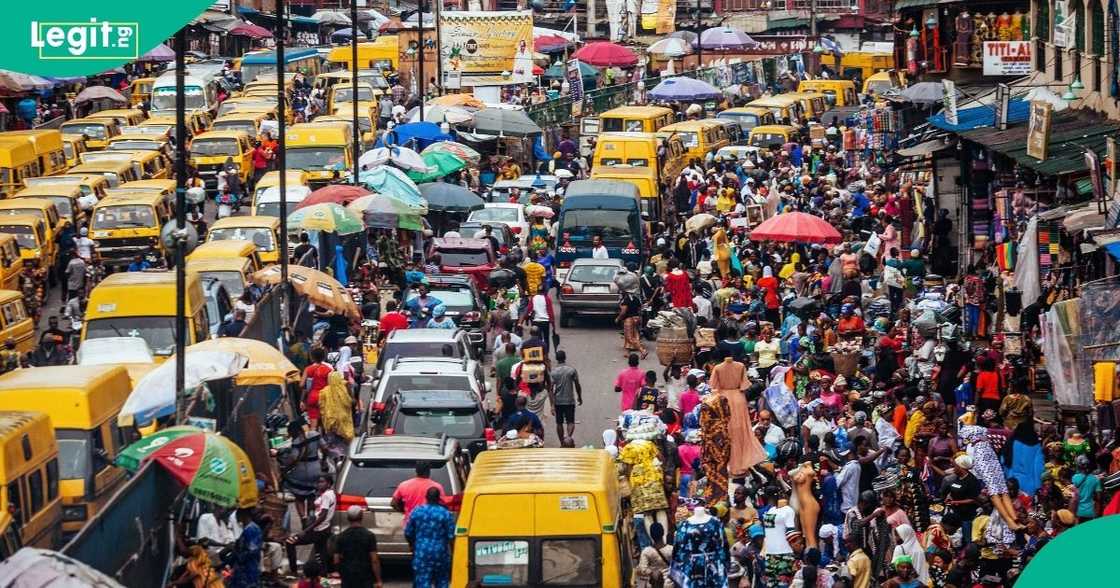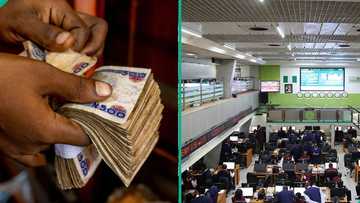Rising Debt: Each Nigerian Now Owes N662,565, a Family of 5 Over N3m
- Nigeria's public debt has surged to a new high as the government, at various levels, continues to seek funds despite rising revenue
- New data shows that Nigeria's total debt, including both external and domestic obligations, is now over N152 trillion
- Economists have provided insight into the long-term fiscal risks and why the Nigerian government must exercise caution
Legit.ng journalist Dave Ibemere has over a decade of experience in business journalism, with in-depth knowledge of the Nigerian economy, stocks, and general market trends.
Data from the Debt Management Office revealed that Nigeria’s total public debt has surged to N152.39 trillion as of June 2025, a rise from N87.4 trillion in June 2023, around the time President Bola Tinubu assumed office.
The increase means each Nigerian now carries a debt share of about N662,600, nearly doubling the per-capita burden from 2023.

Source: Getty Images
The debt figures for citizens were calculated by dividing the total public debt by the estimated population of 230 million.
Nigeria's public debt
According to the breakdown, Nigeria's total external debt, which accounts for 47.1% of total debt, rose to $46.98 billion, with the federal government responsible for $42.17 billion and states and the FCT owing $4.81 billion.
Domestic debt, representing 52.9% of total debt, increased to N80.55 trillion, with the federal government accounting for N76.59 trillion and states and the FCT contributing N3.96 trillion.
When the figures are compared with June 2023, external debt rose from $43.16 billion, while domestic borrowing grew from N54.13 trillion, representing a 74% increase in total public debt in just two years.
Overall, the Federal Government accounts for nearly 93% of the country’s entire debt stock.
Nigeria’s total public debt includes loans from multilateral and bilateral creditors, commercial borrowings such as Eurobonds, and domestic instruments like treasury bills and bonds.
Insight into how much Nigeria owes
- 1 Person: N662,600
- 2 People: N1,325,200
- 3 People: N1,987,800
- 4 People: N2,650,400
- Family of 5: N3,313,000
- Family of 6: N3,975,600
- Family of 7: N4,638,200
- Family of 8: N5,300,800
- Family of 9: N5,963,400

Source: Getty Images
Expert fiscal warning
Economists warn that Nigeria’s rising debt profile poses long-term fiscal risks, especially amid sluggish revenue growth, rising inflation, and a weakening naira.
They note that the increasing debt service costs could crowd out vital spending on infrastructure, healthcare, and education.
Nigeria’s federal revenue hit a record N3.64 trillion in September 2025, representing a 411% jump from N711 billion in May 2023. With ongoing tax reforms, revenue is expected to grow even further, Punch reports.
However, Zacch Adedeji, the Executive Chairman of the Federal Inland Revenue Service (FIRS), recently addressed journalists on government borrowing, stating:
“Borrowing is not a problem… Is borrowing not part of the budget we submitted to the National Assembly? Was it not approved? Are we borrowing outside what was approved?”
Commenting on the broader fiscal landscape, Muda Yusuf of the Centre for the Promotion of Private Enterprise (CPPE) told Legit.ng that, given Nigeria’s limited fiscal space, spending efficiency is paramount. He noted:
“Nigeria’s fiscal and tax reforms have achieved significant progress in expanding revenue and improving fiscal sustainability.
"The next phase must focus on deepening revenue diversification, enhancing spending efficiency, and aligning fiscal outcomes with real economic performance.
"With prudent management, stakeholder collaboration, and social sensitivity, these reforms can lay a solid foundation for a more resilient, productive, and inclusive Nigerian economy.”
Dangote pays Over N400bn in taxes
Earlier Legit.ng reported that Dangote Industries Limited (DIL) and its subsidiaries have disclosed a total tax payment of N402.319 billion.
The company, in a statement released on Wednesday, March 6, said its tax payments solidify its position as the highest taxpayer in Nigeria.
The tax payments included those of its subsidiaries Dangote Cement, NASCON, and Dangote Packaging Limited.
Source: Legit.ng





